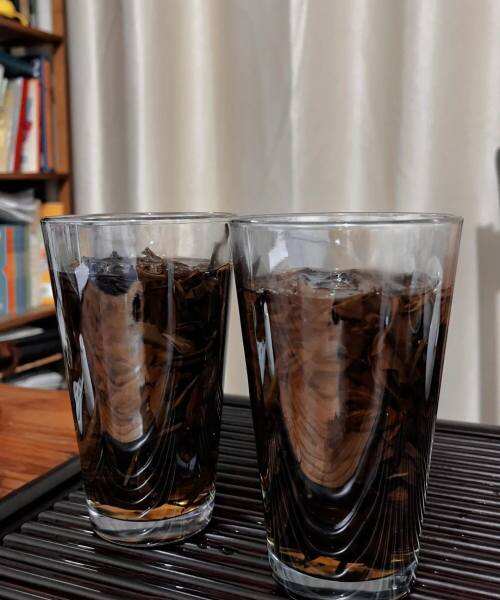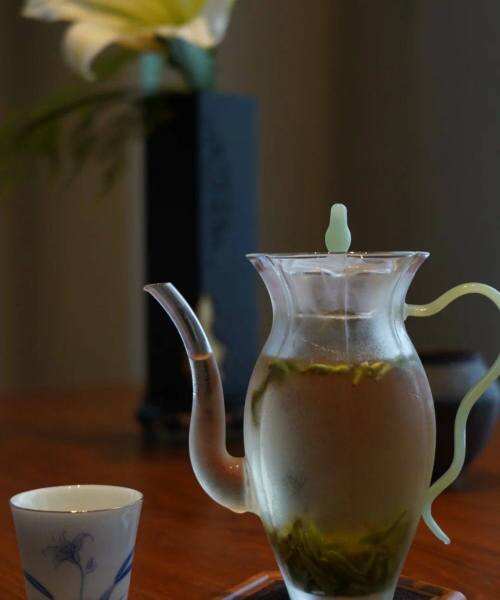Does White Tea Have Caffeine? Yes! Here’s Why It’s the Gentle Energy Boost You’ll Love
If you’re sipping on white tea or thinking about trying it, you might be wondering: “Does white tea have caffeine?” The short answer is yes, but there’s a lot more to the story. Whether you’re caffeine-sensitive, looking for a gentler energy boost, or just curious, let’s dive into the details so you can enjoy your tea with confidence.
Wait, White Tea Does Have Caffeine?
First things first: all “true” teas come from the same plant—Camellia Sinensis. That includes white, green, oolong, black, and pu-erh teas. Since caffeine naturally occurs in tea leaves, white tea does contain caffeine. But here’s the catch: its caffeine levels are generally lower than most other teas and way below coffee.
So why do people call white tea “low-caffeine”? Let’s break it down.
How Much Caffeine Is in White Tea?
A typical 8-oz (250ml) cup of white tea contains 6-55 mg of caffeine. That’s a big range! Here’s why it varies so much:
1. The Type of White Tea Matters
Silver Needle (Baihao Yinzhen): Made from young tea buds covered in fine white hairs, this premium white tea has higher caffeine—around 20-30 mg per cup. Buds naturally pack more caffeine than older leaves.
White Peony (Bai Mudan): A mix of buds and young leaves, this variety has slightly less caffeine than Silver Needle.
Shou Mei or Aged White Tea: Made from mature leaves, these types have the lowest caffeine content—sometimes as little as 6-15 mg per cup.
2. Brewing Style Plays a Role
How you prepare your tea affects caffeine levels:
Hotter Water = More Caffeine: Using boiling water (over 90°C/194°F) pulls out more caffeine.
Longer Steep Time = Stronger Kick: Steeping for 5+ minutes? That’ll extract more caffeine.
Pro Tip: To minimize caffeine, use cooler water (70-85°C/160-185°F) and steep for 2-3 minutes.
3. Compare It to Other Drinks
Let’s put white tea’s caffeine into perspective (per 8-oz cup):
White Tea: 6-55 mg
Green Tea: 30-70 mg
Black Tea: 47-90 mg
Coffee: ~96 mg
Decaf Coffee: 2-5 mg
So, while white tea isn’t caffeine-free, it’s a lighter option—especially if you pick Shou Mei or tweak your brewing method.
Why Is White Tea Lower in Caffeine?
Two main reasons explain white tea’s reputation as a “low-caffeine” tea:
1. Minimal Processing
White tea is the least processed of all teas. It’s simply wilted and dried, preserving the natural structure of the leaves. Unlike black or oolong tea, there’s no rolling, crushing, or heavy oxidation to break down the leaves and release more caffeine.
2. It’s All About the Leaves
Some white teas (like Shou Mei) use older, larger leaves that naturally contain less caffeine than young buds. Think of it like spinach vs. kale—the age and part of the plant affect its chemical makeup.
Can You Drink White Tea if You’re Caffeine-Sensitive?
If caffeine keeps you up at night or makes you jittery, white tea might still work for you—with a few tweaks:
Choose Mature Leaf Varieties: Opt for Shou Mei or aged white tea over Silver Needle.
Brew It Lightly: Use cooler water and steep for 2-3 minutes.
Try a “First Steep Dump”: Caffeine extracts quickly! Some tea drinkers pour out the first 30-second steep to reduce caffeine, then re-steep the leaves.
Pair with Food: Having tea with a snack slows caffeine absorption, reducing sudden energy spikes.
Still worried? Switch to herbal teas like chamomile or rooibos—they’re naturally caffeine-free.
But Wait—White Tea Has Surprising Perks!
While we’re talking caffeine, don’t overlook white tea’s health benefits:
Antioxidant Powerhouse: Packed with polyphenols and catechins, white tea fights free radicals (those pesky molecules linked to aging and disease).
Metabolism Boost: Studies suggest it may help burn fat and regulate blood sugar.
Skin Savior: Its antibacterial properties can combat acne, and antioxidants promote collagen production.
Immune Support: Contains zinc and selenium, which strengthen your body’s defenses.
Myth Busting: White Tea vs. Decaf
Some folks confuse “low-caffeine” with “decaf.” Here’s the truth:
Decaf Tea: Processed to remove 97%+ of caffeine. But decaf still has trace amounts (2-5 mg per cup).
White Tea: Naturally lower in caffeine but not caffeine-free.
If you need zero caffeine, stick to herbal blends.
Final Thoughts: Should You Try White Tea?
So, does white tea have caffeine? Yes—but it’s one of the mildest options if you want a gentle energy lift without the coffee jitters. Its caffeine content depends on the tea type, brewing style, and even the age of the leaves.
For caffeine-sensitive folks, white tea can be a great fit—just tweak how you brew it. And if you’re here for the health perks, white tea delivers antioxidants, metabolic support, and more.
Next time you’re craving a warm, soothing cup, give white tea a shot. Who knows? It might become your new go-to for cozy mornings and relaxed evenings!












Add comment
You must be logged in to post a comment.